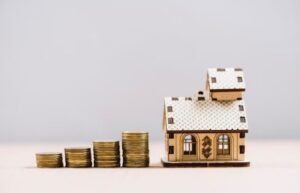As we move into a more environmentally conscious era, sustainability and eco-friendliness are becoming increasingly important. Sustainable living doesn’t just lower your carbon footprint while decreasing waste and energy usage, but it can also save you money and make your home more comfortable.
This article outlines all the benefits of sustainable and eco-friendly home living. You will learn how to live a cleaner lifestyle in sync with nature so that you can be comfortable without compromising on environmental friendliness.
We will cover topics such as energy efficiency for appliances, water conservation habits, organic gardening, renewable sources of energy, reusing or repurposing materials in your home design, reducing pollution indoors and outdoors, composting kitchen scraps for fertilizer, harvesting rainwater for reuse purposes, and much more!
Lower energy bills through the use of energy-efficient products
Using energy-efficient products at home can have a substantial impact on lower energy bills! These products often use far less energy than their traditional counterparts, saving you money every single month.
For example, compact fluorescent light bulbs use 75% less electricity than incandescent bulbs and have much longer lifespans – so you save money twice! Smart thermostats are also an excellent option to reduce energy costs since they are designed to turn off when the temperature in your house is comfortable.
Air conditioners that have Energy Star ratings use up to 25% less energy compared to those without the rating, saving up to 20% on cooling costs. Investing in a few key pieces of eco-friendly appliances will increase your savings for years to come!
Reduced carbon footprint and environmental impact
Making lifestyle changes to reduce your carbon footprint and environmental impact is an important part of eco-friendly home living. Not only will you help protect the environment but you’ll also reap the benefits from reduced electricity and water bills.
Reducing your energy use doesn’t have to be complex or expensive. Even small adjustments like switching to LED light bulbs or heating with a sustainable source can make a real difference in your carbon footprint.
Switching to non-toxic cleaning products and recycling items when possible are other simple ways to reduce your environmental impact. Investing in features like solar panels, rain barrels, and landscape elements such as drought-tolerant plants can further contribute to an eco-friendly lifestyle while bringing added financial benefits.
Improved indoor air quality
Have you ever felt like you’re walking around in a fog due to the stuffy air in your home? After all, poor indoor air quality can be hazardous to our health. Thankfully, sustainable and eco-friendly home living has some major benefits for improving the air we breathe!
When it comes to improved indoor air quality, upgrading your home to energy-efficient systems and green cleaning products is essential. High-efficiency HVAC systems and air filtration systems reduce the amount of dust, mold, and other pollutants floating around your house.
The burning of candles or using chemical-laden cleaning supplies only adds to existing indoor pollutants. But natural alternatives such as soy or beeswax candles with essential oil fragrances can help clean the air without any added toxins.
Even small changes such as regularly opening windows in your home can improve indoor air quality by introducing fresh outdoor air into your home environment. And that means fewer headaches caused by bad indoor air pollution!
Lower costs and decreased waste through the use of sustainable materials
Using sustainable and eco-friendly materials in your home living is the fast track to making dramatic savings. It can also contribute to a more efficient resource usage.
Using sustainable and eco-friendly materials in your home living is the fast track to making dramatic savings. It can also contribute to more efficient resource usage.
When planning updates and/or repairs, householders should always consider eco-friendly alternatives, particularly when it comes to insulation and energy efficiency projects. This can lead to substantial cost drops and waste reduction.
Eco-friendly materials are typically made from renewable resources, taking advantage of natural resources instead of using up finite products such as concrete or plastics. You’ll be amazed at the improvements that you can make with relatively simple changes like switching from plastic window frames to wooden frames.
Upgrading your home in an eco-friendly fashion has both long-term monetary impacts and environmental benefits: lower costs for you and decreased waste for our planet!
Increased home value and market appeal
By incorporating sustainable and eco-friendly features into your home, you can increase its value. Not to mention you’ll get a better return on your investment when it comes time to sell.
One of the main benefits is that it’ll make your home more appealing to prospective buyers. People are increasingly looking for homes that offer amenities like solar panels, energy-efficient appliances, and smart-home solutions.
Plus, updating your home with sustainable and eco-friendly features could give you an edge over other homes on the market. Homes with these features will naturally stand out and be more desirable to prospective buyers who want a ‘greener’ option as they look for their next property.
With increased home value comes increased market appeal—you’re sure to see this really pay off when it’s time to list your house for sale!
Increased comfort and health through the use of natural and non-toxic products
Using natural and non-toxic products in your home is one of the greatest benefits of sustainable and eco-friendly living. These products are designed to provide a safer and healthier environment for your home and family.
Natural items such as stones, wood, bamboo, wool, etc., provide comfort and warmth without off-gassing harmful chemicals as some synthetic materials do. Plus, organic common items like mattresses, bedding sets, and carpets come from sustainable resources too!
By using natural products, you’ll reduce toxic chemicals that cause indoor air pollution. Plus, you’ll enjoy comfortable sleeping surfaces without compromising the health of your home occupants! Non-toxic paints are also very beneficial for their superior odors as well as long-lasting internal air quality benefits.
Improved water conservation and management
Improved water conservation and management are one of the key benefits of sustainable and eco-friendly living. Living in an eco-friendly home offers a number of advantages when it comes to conserving and managing your water resources.
By taking intentional measures like ensuring efficient plumbing, investing in a smart irrigation system, reducing consumption by using low-flow fixtures, and collecting rainwater, you can significantly reduce your consumption of water without abridging on the comforts of modern living.
Furthermore, living sustainably means more than just conserving water — it also entails protecting other valuable natural resources such as soil, air, wildlife, and trees. Sustainable homeowners may explore efficient habits such as growing native plants that require less water than other varieties to thrive.
For example, by landscaping your space with drought-tolerant species you can significantly reduce your footprint whilst still enjoying beautiful blooming gardens during springtime!
The enhanced overall quality of life and well-being
Environmentally conscious living can result in a higher quality of life and well-being. How? Simple: It eliminates pollution, waste, and combats climate change!
Not only that but even small changes such as reducing water consumption and using planet-friendly cleaning products can contribute to improved air quality—which helps to reduce physical illnesses caused by air pollutants.
Not to mention, eco-friendly home living could also help you save money by reducing electricity and water bills in the long run. Plus there’s a strong sense of accomplishment that comes with making sustainable lifestyle changes too!
The transition towards living sustainably is one of the smartest investments that you can make for not only our environment but for your bank account and overall health too.
Positive impact on local communities and the global environment
Sustainable and eco-friendly home living isn’t just good for the environment – it also has a positive impact on local communities. By making conscious decisions about our consumption and energy usage, we can create less waste and help preserve natural resources.
Living an eco-friendly lifestyle can lead to reductions in water pollution and greenhouse gas emissions, which means that we can play an important role in combating climate change.
Plus, these sustainable practices will reduce the amount of energy needed to produce goods, so more of it can stay in the community and be used to develop better homes and public spaces.
Moreover, turning away from wasteful lifestyles also helps mitigate poverty in developing nations by allowing more resources to be shared among everyone. Ultimately, this will lead to healthier local economies and improved quality of life!
Bottom Line
Living in a sustainable and eco-friendly home isn’t just good for the environment—it’s also good for your pocketbook and your health.
Making simple changes to reduce energy consumption, conserve water, and switch to green cleaning products can have a big impact on the environment. And when you save money on bills and keep your allergies at bay, everyone wins. So don’t wait any longer—start making the transition to a more sustainable lifestyle today.













